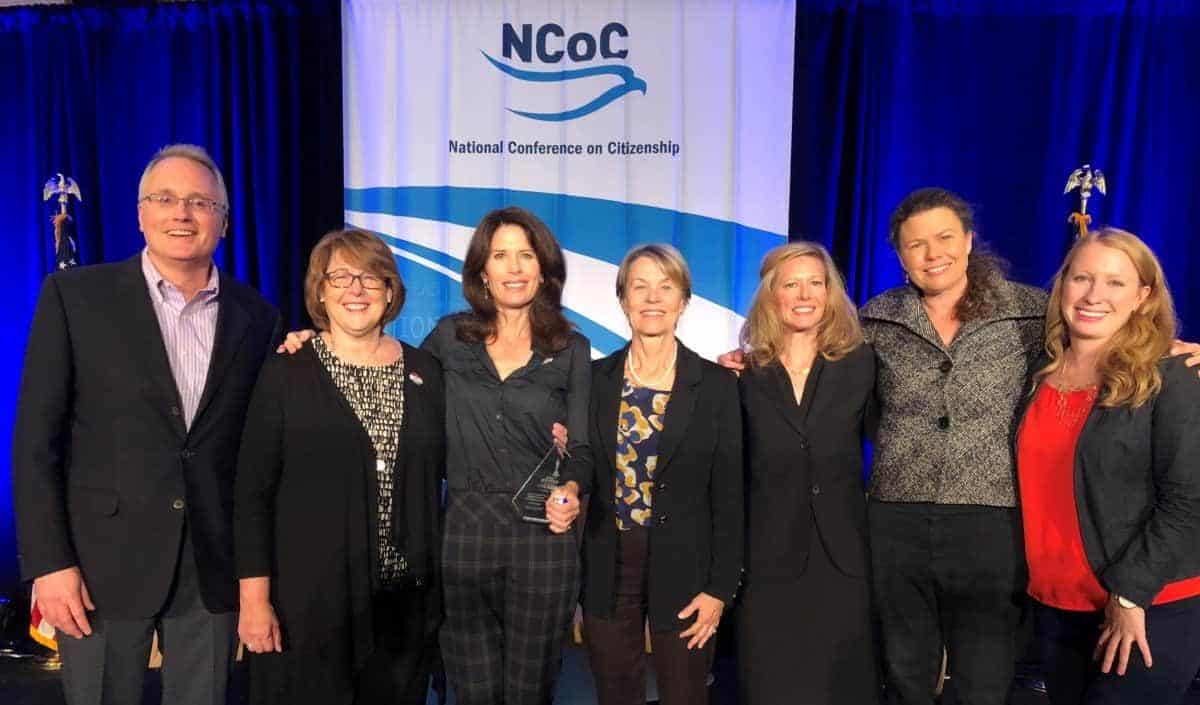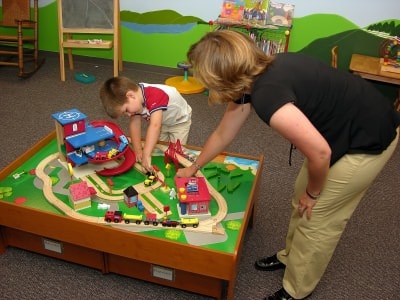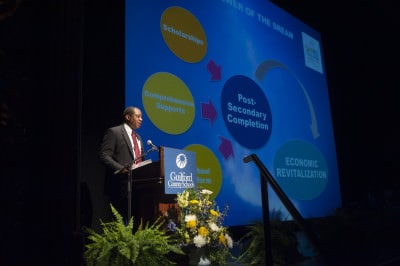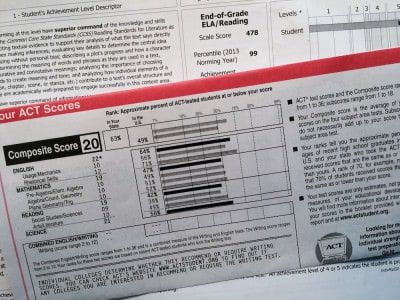
In March 1971, with young Americans still sent into battle in Vietnam, Congress approved the 26th Amendment to the Constitution, giving the right to vote to 18-, 19- and 20-year olds. On July 1, 1971, North Carolina became the 38th state needed to ratify the amendment.
I mention that historical moment as a backdrop to reflecting on the contentious and consequential 2018 mid-term elections, with early voting already in progress in North Carolina — and also, if you will indulge me, to celebrating a national award to First Vote NC, an initiative of EducationNC.
At the National Conference on Citizenship in Washington, D.C. last week, First Vote NC won the American Civil Collaboration Award — known as the Civvys — for “youth projects.” The Civvys organization cited First Vote NC for a “track record of success with their virtual voting platform and civics lessons, which provide education, information, and room for engagement, while de-emphasizing the right-versus-wrong nature of today’s politics in favor of understanding how perspectives differ because of a myriad of factors.”
The Civvys award, thus, recognized the efforts of First Vote founder Hunter Buxton, EdNC CEO Mebane Rash, and their team to achieve the right balance in working with teachers to deepen high school students’ education in democracy and to begin to instill voting as a norm of American citizenship. The U.S. does not force people to vote by law or to fine those who do not, but the legitimacy of representative government requires wide participation.
The 19th Amendment, ratified in 1920, brought women into the electorate. The 1965 Voting Rights Act, which at last enforced the 15th Amendment, opened the electorate to black Americans whose participation had been suppressed in the South by Jim Crow laws.
Southern states, including North Carolina, have long had lower rates of voter turnout than the national level. And dropping the voting age from 21 to 18 had the paradoxical effect of lessening voter turnout rates — that is so because young adults do not vote on the same scale as their more-rooted and experienced elders.
Over the past 20 years, North Carolina has scored successes in voter registration and participation. From 1966 to 1996, registered voters as a percentage of the voting age population remained in the 61-to-78 range. Then, a surge began in 1998 when the percentage went up to 84 — and registration as a percentage of the voting age remained above 80 through the 2000s, then it peaked at nearly 92 in 2012.
Voter turnout, of course, varies from election to election, highest in presidential election years, somewhat lower on off-year national elections, even lower in local elections. Sixty-nine percent of North Carolina registered voters cast ballots in each of the past three presidential elections, but only 44 percent in the past two off-year elections.
In my experience, the old bromides — if you don’t vote, you can’t complain; remember how people fought for the right to vote — don’t really do much to motivate people to flock to the ballot box. What drives voters to the polls are political parties and candidates’ organizations that work hard at turn-out tasks as well as campaigns in which the outcomes really matter to people.
I remember, on a trip to New Orleans in 1991, seeing that unforgettable bumper sticker in the Louisiana governor’s race between the corruption-tainted former Gov. Edwin Edwards and former KKK leader David Duke. “Vote for the crook,’’ the bumper strip said. “It’s important.”
Edwards won, and Louisiana didn’t have to suffer the indignity of a white supremacist governor. Eventually, the law caught up with Edwards, who served time in prison. For a while Duke hosted a radio talk show, and then he showed up at that white nationalists’ gathering in Charlottesville.
Let’s be thankful North Carolina in 2018 doesn’t replicate Louisiana in 1991. And yet, the Tar Heel state isn’t immune to the social divisions and political polarization of contemporary America. In both congressional and state elections, North Carolina voters will have a say in the balance of power in Washington and in Raleigh.
From my experience with students just out of high school, today’s hyper-polarization makes young people anxious. Still, when the divisions are deep and the choices difficult, students need to learn that the future of democracy demands that they run to, not away from, the fires of their times. It’s important.
Here are links to further voting-related statistics:
https://www.ncsbe.gov/voter-turnout
https://demography.cpc.unc.edu/2016/11/02/the-north-carolina-electorate-north-carolina-born-voters/
http://www.oldnorthstatepolitics.com/
Recommended reading



